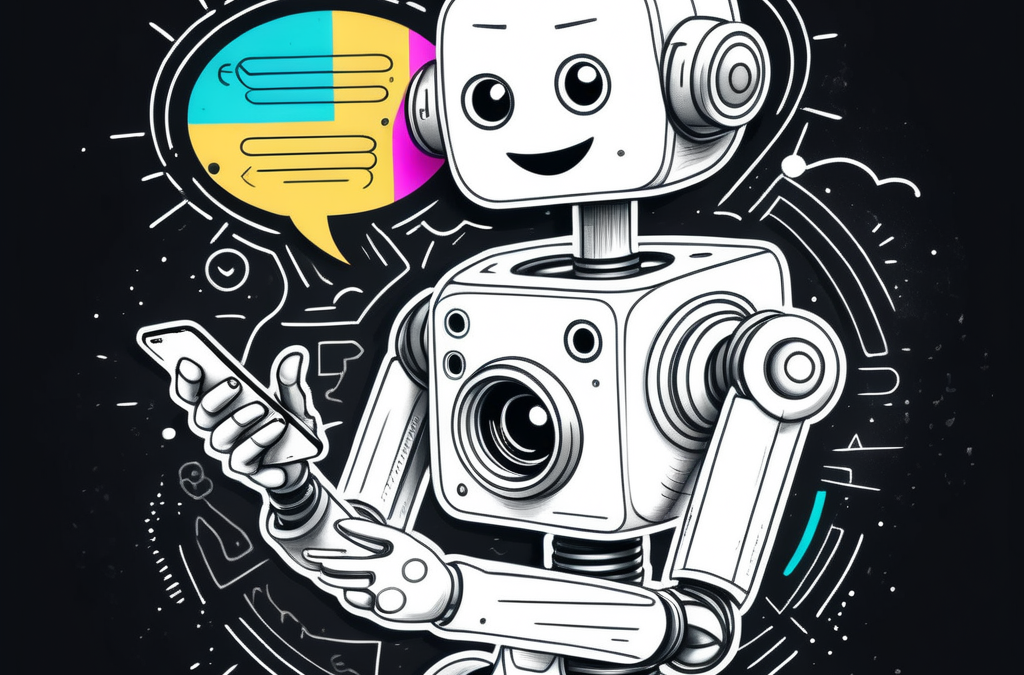Imagine having a conversation with a computer program that understands and responds to your every query, just like a human. Welcome to the world of chatbots, where technology has made it possible for machines to have conversations with us. But what exactly are chatbots, and how do they work?
In this article, we’ll take a closer look at the world of chatbots, exploring what they are, how they work, and the different types of chatbots that exist. Whether you’re a young tech enthusiast, a professional looking to leverage chatbots for your business, or simply someone curious about this emerging technology, this article aims to provide you with a comprehensive understanding of chatbots and their role in shaping the future of communication.
What is a Chatbot? Unraveling the Mystery
A chatbot is a computer program designed to simulate conversations with human users, making it possible to interact with technology in a more natural and intuitive way. Think of chatbots as your friendly digital assistants. When you type a question or speak to a device like a smart speaker, the chatbot listens, processes what you said, and responds with helpful information.
Key Features of Chatbots:
- 24/7 Availability: Chatbots are always ready to assist, providing quick responses without the need for human intervention.
- Efficiency: They help streamline tasks, making it easy to book tickets, check the weather, or get answers to common questions.
- Versatility: Chatbots can operate on various platforms, including websites, messaging apps, and social media.
How Do Chatbots Work? Demystifying the Technology
At the core of every chatbot lies a set of algorithms, which are essentially instructions that the program follows to understand and process user input. When you send a message to a chatbot, this input triggers the chatbot’s algorithms, which work to decipher the meaning behind your words through Natural Language Processing (NLP)—a subset of AI that enables computers to interpret human language.
Types of Chatbots:
- Rule-Based Chatbots: These respond to specific commands and keywords, making them suitable for basic queries.
- AI-Powered Chatbots: Equipped with advanced algorithms, these can handle complex interactions and learn from user data.
One of the most significant advantages of chatbots is their ability to learn and improve over time. Through machine learning, chatbots collect data from user interactions, allowing them to provide more accurate and relevant responses.
Chatbots in Action: What Can They Do?
Chatbots are transforming our daily lives, often without us even realizing it. When you visit a website and a chat box appears asking if you need help, that’s a chatbot at work. Here are some of the ways chatbots enhance our experiences:
- Customer Support: They provide instant responses to inquiries, improving user satisfaction.
- Personal Assistance: Chatbots can manage schedules, send reminders, and help with tasks like booking appointments.
- Educational Tools: In educational settings, chatbots offer instant feedback and assist with learning materials, making complex topics easier to understand.
- Entertainment: Some chatbots engage users through games, quizzes, and casual conversation.
As chatbots evolve, their capabilities will expand, making them an integral part of our interactions with technology.
The Future of Chatbots: Exciting Trends Ahead
The future of chatbots is bursting with potential. Here are some exciting trends to watch for:
- Improved NLP: Future chatbots will better understand human conversations, including emotional nuances, allowing for more personalized interactions.
- Voice Activation: As smart speakers gain popularity, voice-activated chatbots will enable hands-free interactions, making it easier to access information on the go.
- Integration with VR and AR: This technology will give rise to interactive virtual assistants that enhance immersive learning experiences.
As businesses recognize the value of chatbots, they will transition from simple tools to essential components of our daily lives, capable of handling complex tasks and providing tailored experiences.
Chatbots for Young Tech Enthusiasts: Why You Should Care
Creating your own chatbot is easier than you think! With the right tools and platforms, you can design a chatbot that serves various functions.
Benefits of Building Chatbots:
- Hands-On Learning: Gain valuable skills in AI, machine learning, and natural language processing.
- Creativity and Problem-Solving: Develop essential soft skills that are valuable in any career.
- Career Opportunities: As demand grows for skilled professionals in AI and chatbot development, your knowledge could lead to exciting job prospects.
Getting Started:
- Explore Online Resources: Look for tutorials and platforms that can guide you in creating your chatbot.
- Experiment with Ideas: Think of innovative applications for your chatbot, whether for fun or assistance.
Conclusion: The Takeaway on Chatbots
Chatbots are revolutionizing the way we interact with technology. With their ability to simulate conversations, provide personalized experiences, and learn from interactions, chatbots have the potential to transform our lives.
Whether you’re a tech enthusiast, a business owner, or simply curious about technology’s future, we hope this article has deepened your understanding of chatbots and their potential.
So, what’s next? Dive deeper into the world of chatbots, experiment with new features, and discover the incredible impact they can have on your life and work. The possibilities are endless, and the future is bright—get ready to embark on an exciting journey into the realm of chatbots!


